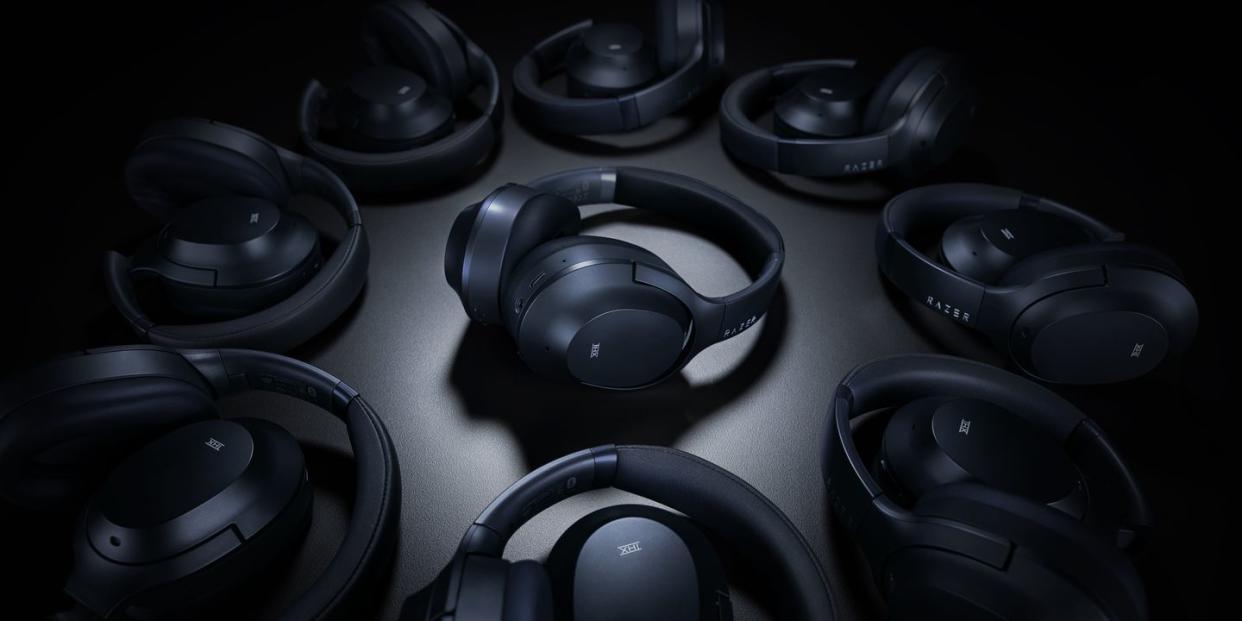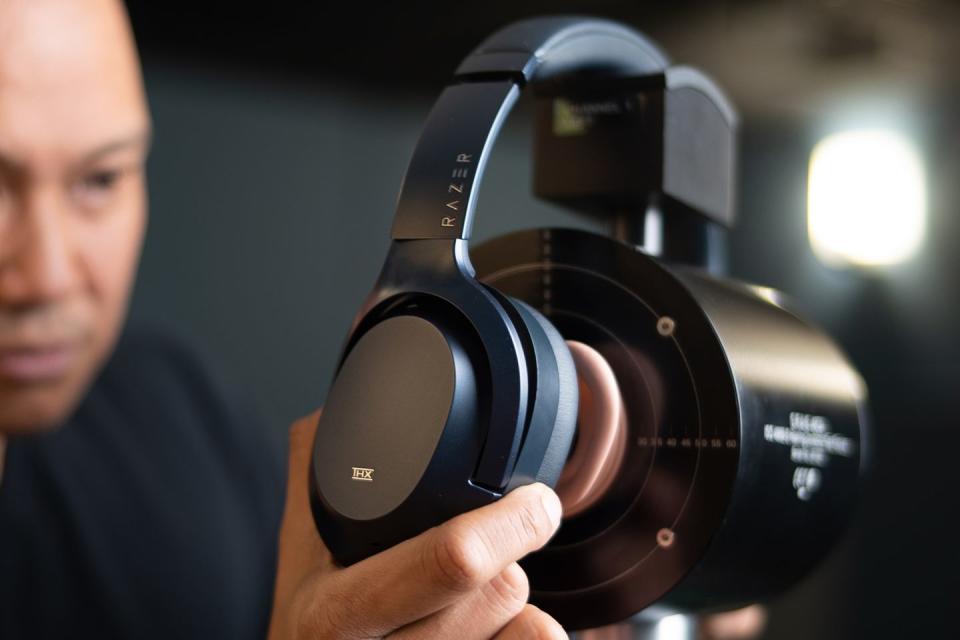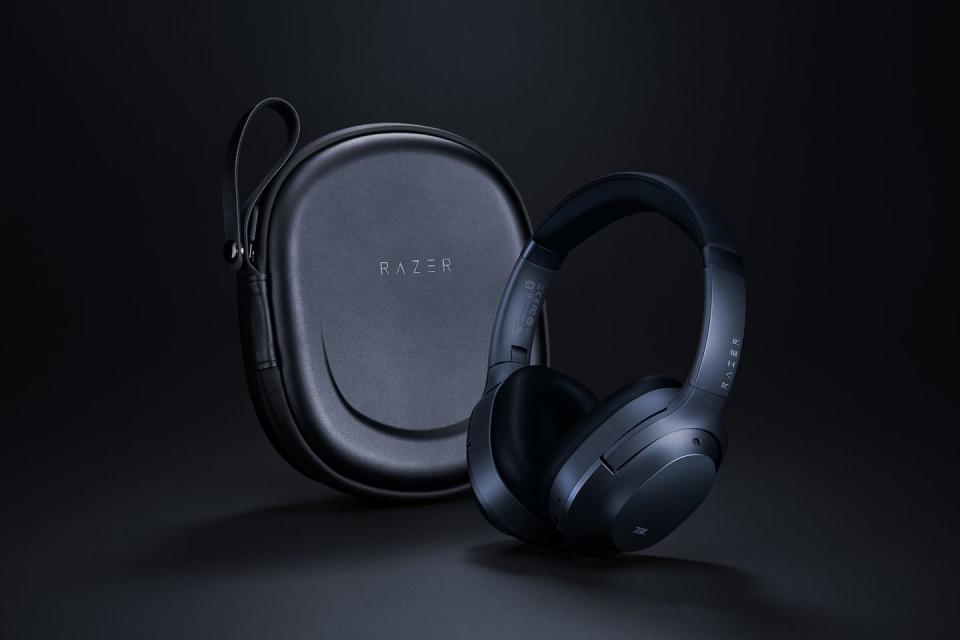Why the Razer Opus Wireless Noise-Canceling Cans Are Our Favorite Under $200

We judge all headphones and earbuds on a scale of 10, analyzing the categories we think are most important: sound, comfort, design, battery performance, and, if applicable, special features.
Here's how the Razer Opus wireless noise-canceling headphones stack up.
The Opus wireless noise-canceling headphones are not the usual Razer product that’s geared towards gamers. With sleek design and expertly tuned sound, the over-ear cans are an offering with mainstream appeal. Priced below $200, the headphones are also a solid alternative to much pricier rivals from Bose, Bowers & Wilkins, and Sony.
SCORES
• Sound: 8/10
• Comfort: 9/10
• Design: 8/10
• Battery Performance: 7/10
• Overall Score: 8/10
ALL YOU NEED TO KNOW ABOUT THE RAZER OPUS:
The cans deliver a distortion-free sound even at maximum volume
They are uncompromisingly comfortable
Their battery performance, while satisfactory, could be better
Sound: 9/10
During my testing, I found the Razer Opus' sound to be quite spectacular. Powered by 40-millimeter audio drivers, the sonic experience is balanced and ideal for any type of content.

The cans have an official THX certification, which guarantees that they meet a strict criteria for frequency response, distortion, and noise isolation. Founded almost 40 years ago by none other than the legendary Star Wars director George Lucas, THX is a company with a mission to ensure that individual users and audiences can enjoy a true-to-life audio regardless of the occasion.
Razer has tuned the Opus to deliver reference-grade THX sound out of the box. Users can change the acoustic experience via a mobile app, and there are dedicated equalizer presets for enhanced bass or clarity, boosted vocals, as well as for amplified overall sound.
“Giorgio by Moroder” — one of my favorite Daft Punk tracks — sounded magnificent on the Razer Opus in THX mode. The balance between the futuristic synthesizer, the bass and the guitar tones, the drums, the percussions, and the mellow voice of the Italian electronic music icon was sublime.
The noise-canceling performance of the Opus headphones is stellar, but not on par with the much pricier Sony WH-1000XM3 and Bose Headphones 700. Still, during lengthy work sessions at home, the cans effortlessly tuned out the noises of the air conditioner, as well as the traffic from the busy street downstairs.
Telephone and zoom calls sounded clear on the Razer Opus. The headphones maintained a robust connection with an iPhone 11 Pro as well as a MacBook Pro while I tested them, though I wonder why Razer equipped them with Bluetooth 4.2 instead of Bluetooth 5.0. The latter has better range and power efficiency, so it’s more futureproof.
Comfort: 9/10
The Razer Opus headphones are among the comfiest I’ve tested to date, thanks to a lightweight build and superbly padded, highly adjustable headband and ear cups. I spent hours using them and didn’t feel even a hint of fatigue.
I enjoyed the tactile volume button controls of the headset, too. They are much better than controls in pricier products, which are often finicky and not intuitive.
There’s an option to make the Opus headphones pause audio playback by placing them on your neck. A quick attention mode, on the other hand, allows you to have a conversation or become aware of your surroundings by long-pressing the noise-canceling button.
Overall, considering Razer’s extensive track record in making great gaming headsets, the exceptional comfort of the Opus didn’t surprise me even a tiny bit. The cans are on par with the industry’s best.
Design: 8/10
Available in black or blue, the Opus headphones have a crisp design with no unnecessary distractions. The tech giant has skipped its signature green accents for subtle THX and Razer logos on the ear cups and the headband, making the cans understated and bound to appeal to mainstream consumers.

Some might find the polycarbonate finish of the Razer Opus a tad generic and that’s understandable — most noise-canceling headphones under $200 follow the same design pattern. For comparison, the Bowers & Wilkins PX7 headphones have vastly more memorable looks and tactility, but they will cost you.
Battery Performance: 7/10
You can expect up to 25 hours of wireless playback from the Razer Opus headphones with the noise-canceling tech switched on. During my testing, I found their endurance to be in line with their maker’s claims. Using them in wired mode with the bundled audio cable significantly extends the amount of noise-canceling bliss you’ll enjoy.
The cans’ battery performance, while plenty reliable, is not on par with their rivals’, probably due to the older Bluetooth 4.2 connectivity they are using. The Sony WH-CH710N noise-canceling headphones have the same price tag, but up to 35 hours of battery life. The Soundcore Life Q20 by Anker pair, on the other hand, has up to 40 hours of battery life for $60. Both Razer alternatives utilize Bluetooth 5.0.
Unsurprisingly, the Opus headphones pack a USB-C connector for replenishing their battery. However, they lack fast charging capabilities — a standard feature for new products in this category.
Overall: 8/10
Phenomenal sound and uncompromising comfort made the Razer Opus my favorite wireless noise-canceling headphones under $200. Their rivals, while capable of lasting longer between charges, are not as proficient acoustically.
The headphones retail package includes a convenient carrying case, a standard audio cable, a USB-C cable for charging, a full USB adapter, as well as a flight adapter.
Shop Razer Opus Wireless Headphones
Read More:
Tested: The Best Wireless Earbuds of 2020
Cheap Headphones That Are Surprisingly Good
More Noise-Canceling Cans Worth Your Attention
Follow BestProducts.com on Facebook, Instagram , Twitter , and Pinterest!
You Might Also Like

